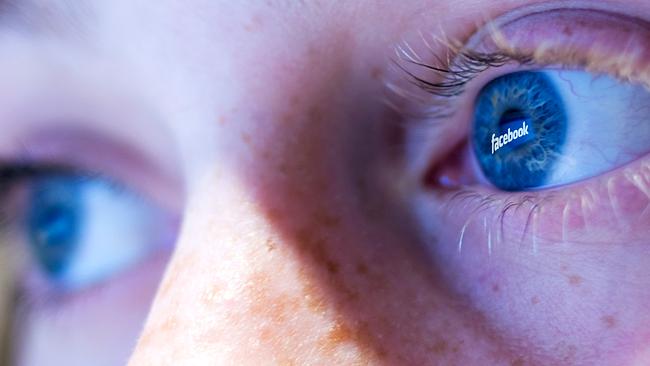Susie O’Brien: Children’s screen time is a fact of life, so let’s manage it
Let’s face facts — child screen time is a fact of life. And “official guidelines” just show how out of touch governments are, writes Susie O’Brien.

Susie O'Brien
Don't miss out on the headlines from Susie O'Brien. Followed categories will be added to My News.
When I read the headlines that said the health of kids is at risk, I assumed the worst. And yet the culprit isn’t neglect or abuse, but an hour in front of a TV, tablet or phone a day.
Yep, it’s destruction by Disney.
Researchers have found two-thirds of parents are breaking national guidelines on the amount of time kids are spending on screens.
Perhaps it’s because those guidelines are ridiculous. Let’s not blame the parents, but federal bodies which are out of touch with modern ways of raising children.

The national recommendations say children under two should not look at screens at all and those aged from two to five should not be in front of screens for more than one hour a day.
And yet a Queensland study of 3000 parents shows kids under two spend 50 minutes in front of screens on weekdays and 58 minutes on weekends. And kids aged two to five watch an average of 90 minutes a day.
A closer reading of the research shows screen time plateaus at about the age of three at 94 minutes a day and reduces once kids start school or go to childcare.
Here’s the truth. Screens make us better parents because they keep kids occupied which allows us to do the things we need to do. Similarly, 50 minutes a day of quality programs or games isn’t going to destroy kids’ minds.
The concern is that children are missing out on other activities and play time when they’re on screens. But why not focus on what parents are doing when kids are on screens rather than what kids aren’t doing?
Putting my first son in front of an hour of The Wiggles every day when he was young wasn’t an indulgence, it was an imperative.
As a first-time working mum of a very active two-year-old, I needed him to stay in one place so I could do things like cook dinner, or put washing on or even just go to the loo without an audience.
That was 13 years ago. The skivvied fab four got me through some pretty hard times.

Parents today don’t turn to a collection of scratched DVDs as their sanity-savers like I used to — they hand over tablets and smartphones instead. There’s nothing wrong with that for an hour or so a day.
These days, parenting is a tough gig. It’s relentless, tiring and often boring. Mothers, and a growing number of fathers, are isolated in their homes, looking after kids with little support.
It’s hard enough staying sane, let alone doing it without the time-out that screens offer.
Even 50 to 90 minutes of screen time a day leaves many, many hours for active play.
There is a lot of scaremongering going on with regard to screens. Neuroscientist Baroness Susan Greenfield even suggests children are “virtually autistic” because of their screen time.
Another headline screams that any screen for kids under two will make them fat. Others say kids have delayed development and short attention spans.
It’s time for a sensible debate about this issue that starts with an understanding that screen time is a given.
Rather than act as if screens are toxic, it would be more useful to give parents tips on managing and setting limits rather than ruling them out altogether.
Doctors in the United Kingdom don’t set such restrictions. A panel of UK researchers says there is little evidence that reasonable screen time is having a detrimental impact.
Even the UK’s Royal College of Paediatrics and Child Health does not set time limits, suggesting parents approach the issue on a case-by-case basis rather than follow blanket guidelines.

I agree there are some cases where kids are screen addicts. I have seen children who scream when the phone is taken away or throw a tantrum if they have to hand over the iPad.
There’s no doubt some parents take it too far. Kids don’t need to be glued to an iPhone while they’re being wheeled around the supermarket for 10 minutes (and given treats).
Kids don’t need to be handed a screen to help them get through a five-minute car ride.
Kids don’t need to be on a screen while they’re in a pram on a walk. They’re strapped in, so they should just enjoy the ride.
Automatically handing a kid a screen with The Lion King or Frozen on high rotation every time there’s a quiet moment means they don’t learn to entertain themselves.
But most parents don’t behave like that and it’s insulting for them to have some so-called expert counting the minutes our kids spend in front of screens.
Studies show mothers whose kids spend a lot of time on screens are also more likely to be experiencing financial and emotional stress.
Let’s give these parents more support to curb excessive screen time rather than demonise parents whose kids have perfectly normal usage.
Susie O’Brien is a Herald Sun columnist


